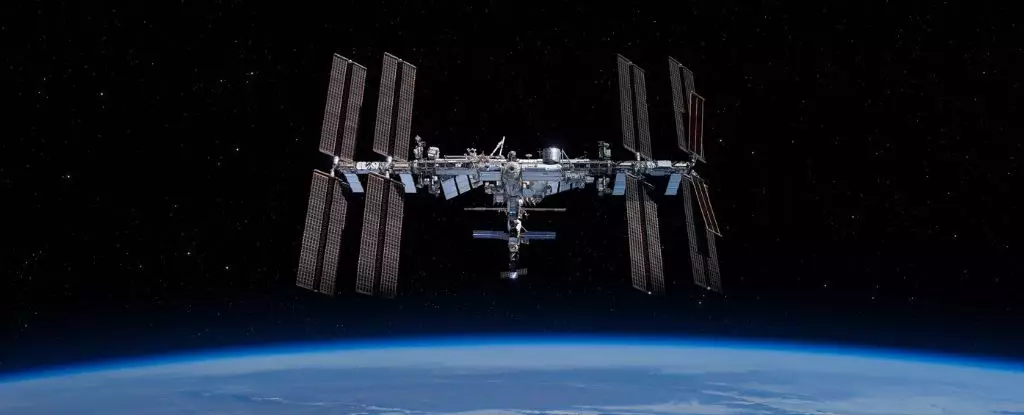The International Space Station (ISS) is a remarkable symbol of human achievement in space exploration, providing a unique habitat for astronauts from around the globe. However, even in such a sophisticated environment, unexpected surprises can arise. Recently, an unusual incident involving a cargo delivery by the Russian Progress 90 spacecraft caught the attention of astronauts and mission specialists alike, as they encountered a perplexing odor upon opening the hatch. The cargo included essential supplies such as food, water, clothing, and scientific apparatus. But among these necessary items was a stench emanating from the uncrewed spacecraft that raised immediate concerns among the crew.
While it might seem trivial to worry about a funny smell, in the confined quarters of the ISS, any deviation from expected conditions can signal significant issues. The presence of unpleasant or unfamiliar odors might indicate the possible release of toxic materials, which in an enclosed space can quickly become hazardous. Consequently, the astronauts quickly closed the hatch again and activated air scrubbers to initiate immediate clean-up procedures.
As contamination sensors were employed to monitor air quality levels, the incident became increasingly serious. The Russian crew donned protective gear while awaiting further information, ensuring their safety while the air was purified. Reports from the ISS confirmed that there were no imminent threats to the crew’s health, yet the discomfort of encountering unknown substances in space can be disconcerting.
It is essential to remember that astronauts typically endure a challenging environment on the ISS, often describing the station’s smells. Some have reported an aroma reminiscent of burnt steak combined with body odor. Despite rigorous testing procedures to assess the olfactory properties of items delivered to the ISS, certain smells can change when those materials come into contact with the harsh conditions of outer space.
NASA officials later contextualized the strange odor from the Progress spacecraft as a result of a phenomenon known as outgassing. When materials are subject to vacuum conditions or variations in temperature, they may release trapped gases or water vapor, leading to the production of odorous compounds. This release can reveal unusual smells not present on Earth due to the differences in atmospheric pressure and temperature.
The potential implications of outgassing are serious; it can corrode equipment, obscure visuals through clouding, disrupt signals, and pose risks to astronaut health. Historically, the Apollo 8 mission stands as a crucial study in this respect, where a silicon rubber seal released harmful gases that temporarily contaminated instrumentation. Fortunately, the incident with Progress 90 appears to be less severe, but the identity of the offending material remains undisclosed, leaving the possibility of lingering odors a concern.
The incident serves as a critical reminder of the challenges involved in managing a confined environment like the ISS. Every component sent into space undergoes scrutiny, yet the journey through the atmosphere to the station can alter its properties. As space exploration continues to expand, both the design and selection of materials for future missions demand careful consideration to minimize the risks associated with outgassing.
Space agencies around the world must persist in developing protocols to ensure the health and safety of astronauts as they work in these extraordinary environments. Heightened awareness surrounding issues like odor management can play a vital role in maintaining a stable and safe living atmosphere aboard the ISS. Monitoring environmental conditions closely, as demonstrated by the response to this recent incident, will form the backbone of future expeditions, allowing astronauts to focus on their vital work rather than unexpected olfactory experiences.
The peculiar case of the cargo spacecraft and its offending odor reinforces the idea that even in highly controlled settings like the ISS, the unknown can always surprise us. Understanding the mechanisms of phenomena like outgassing is essential for ensuring the well-being of astronauts who venture into the final frontier. As they continue to build upon their experiences in space, the lessons learned from such occurrences will undoubtedly inform safer and more efficient practices for future missions. Ultimately, it is the quest for knowledge that drives humanity forward, even when faced with the unexpected scents of space.


Leave a Reply